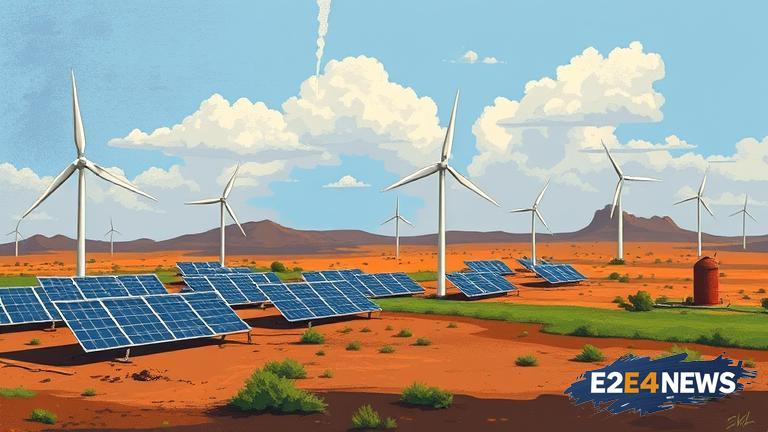The African continent is witnessing a significant shift towards renewable energy, driven by the need to address the pressing issues of energy access, climate change, and sustainable development. With many countries still struggling to provide reliable and affordable electricity to their citizens, renewable energy has emerged as a viable solution. Solar and wind power are leading the charge, with countries like South Africa, Egypt, and Morocco investing heavily in these sectors. The African Renewable Energy Initiative, launched in 2015, aims to achieve at least 300 GW of renewable energy capacity by 2030. This ambitious target is expected to create new economic opportunities, stimulate growth, and improve energy security. Moreover, the adoption of renewable energy can help reduce greenhouse gas emissions, contributing to global efforts to combat climate change. The use of renewable energy can also enhance energy independence, reducing reliance on imported fossil fuels and mitigating the impact of price volatility. Furthermore, renewable energy can create new job opportunities, stimulate local economies, and improve healthcare outcomes by reducing air pollution. In addition, the development of renewable energy infrastructure can attract foreign investment, promote economic diversification, and enhance regional cooperation. However, the transition to renewable energy also poses significant challenges, including the need for significant upfront investment, technology transfer, and capacity building. To overcome these hurdles, African countries are exploring innovative financing mechanisms, such as green bonds and public-private partnerships. The role of international cooperation and knowledge sharing is also crucial, with many countries learning from each other’s experiences and best practices. The African Union’s Agenda 2063 and the United Nations’ Sustainable Development Goals (SDGs) provide a framework for coordinating efforts and tracking progress. As the continent continues to urbanize and industrialize, the demand for energy is expected to rise, making the transition to renewable energy even more urgent. In response, many African countries are developing national renewable energy plans, setting ambitious targets, and creating favorable policy environments. The private sector is also playing a critical role, with companies investing in renewable energy projects and providing innovative solutions. Civil society organizations and community groups are also mobilizing to promote renewable energy, raise awareness, and ensure that the benefits of the energy transition are shared equitably. Despite the many challenges, the future of renewable energy in Africa looks promising, with the potential to transform the continent’s energy landscape, drive sustainable development, and improve the lives of millions of people. The growth of renewable energy can also contribute to regional integration, enhance food security, and support the development of vibrant and resilient economies. As the world continues to grapple with the challenges of climate change, energy poverty, and sustainable development, Africa’s renewable energy revolution offers a beacon of hope and a powerful example of what can be achieved through determination, innovation, and cooperation. With the right policies, investments, and partnerships in place, Africa can emerge as a global leader in the transition to renewable energy, creating a brighter future for generations to come. The continent’s renewable energy journey is just beginning, and it will be exciting to see the progress that is made in the years to come. As the demand for energy continues to rise, African countries must remain committed to their renewable energy goals, leveraging the latest technologies, and innovative financing mechanisms to achieve a sustainable energy future. The benefits of renewable energy are clear, and it is now up to African leaders, policymakers, and stakeholders to work together to create a renewable energy revolution that transforms the continent and improves the lives of all its citizens.
